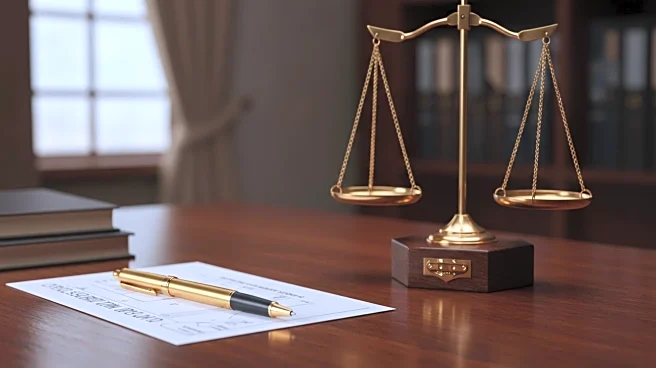What's Happening?
President Trump was initially expected to sign an executive order directing the Justice Department to explore legal actions against individuals who burn the American flag. However, White House officials later indicated that the signing would not occur as planned on Thursday, leaving the timing of any future action uncertain. The proposed order would not criminalize flag burning outright but would instruct Attorney General Pam Bondi to review such cases under existing laws. This development follows a 1989 Supreme Court ruling that protects flag burning as a form of political protest under the First Amendment.
Why It's Important?
The potential executive order highlights ongoing debates over the limits of free speech and the symbolic significance of the American flag. If pursued, the order could lead to legal challenges and further scrutiny of First Amendment rights. The decision not to sign the order immediately may reflect the administration's consideration of the legal complexities involved. This issue resonates with broader discussions on patriotism, civil liberties, and the role of government in regulating symbolic acts of protest.
What's Next?
It remains unclear when or if President Trump will proceed with the executive order. The administration may face pressure from both supporters who view flag burning as unpatriotic and opponents who see it as a protected form of expression. Legal experts and civil rights organizations are likely to monitor any developments closely, potentially leading to court challenges if the order is signed.









